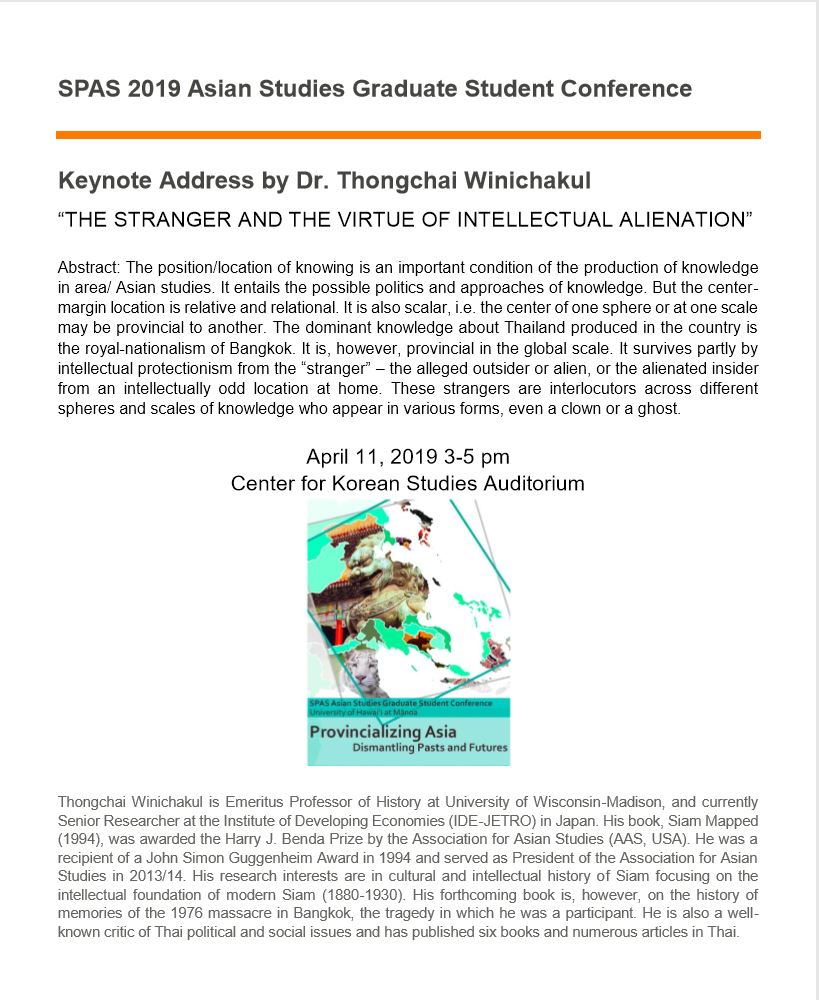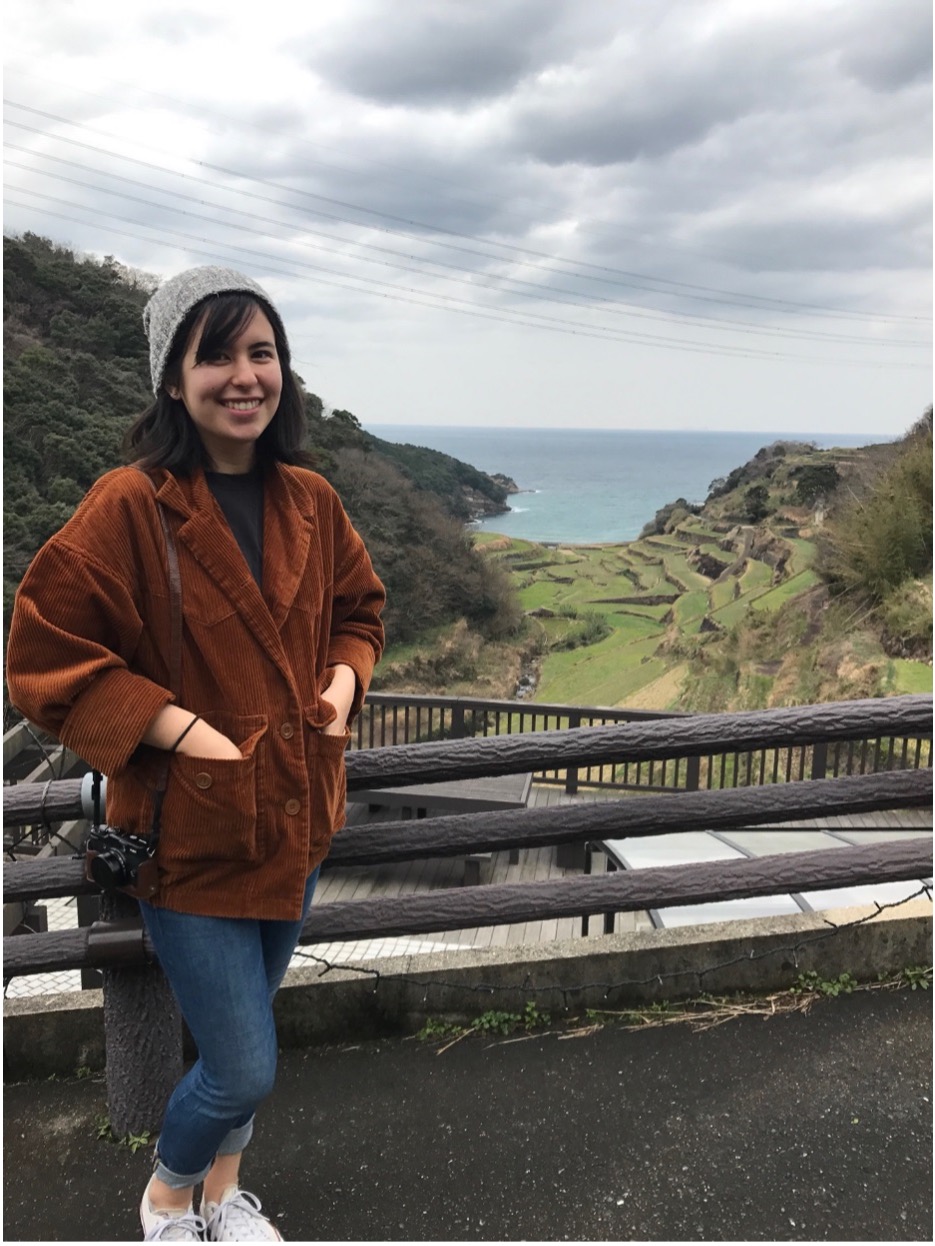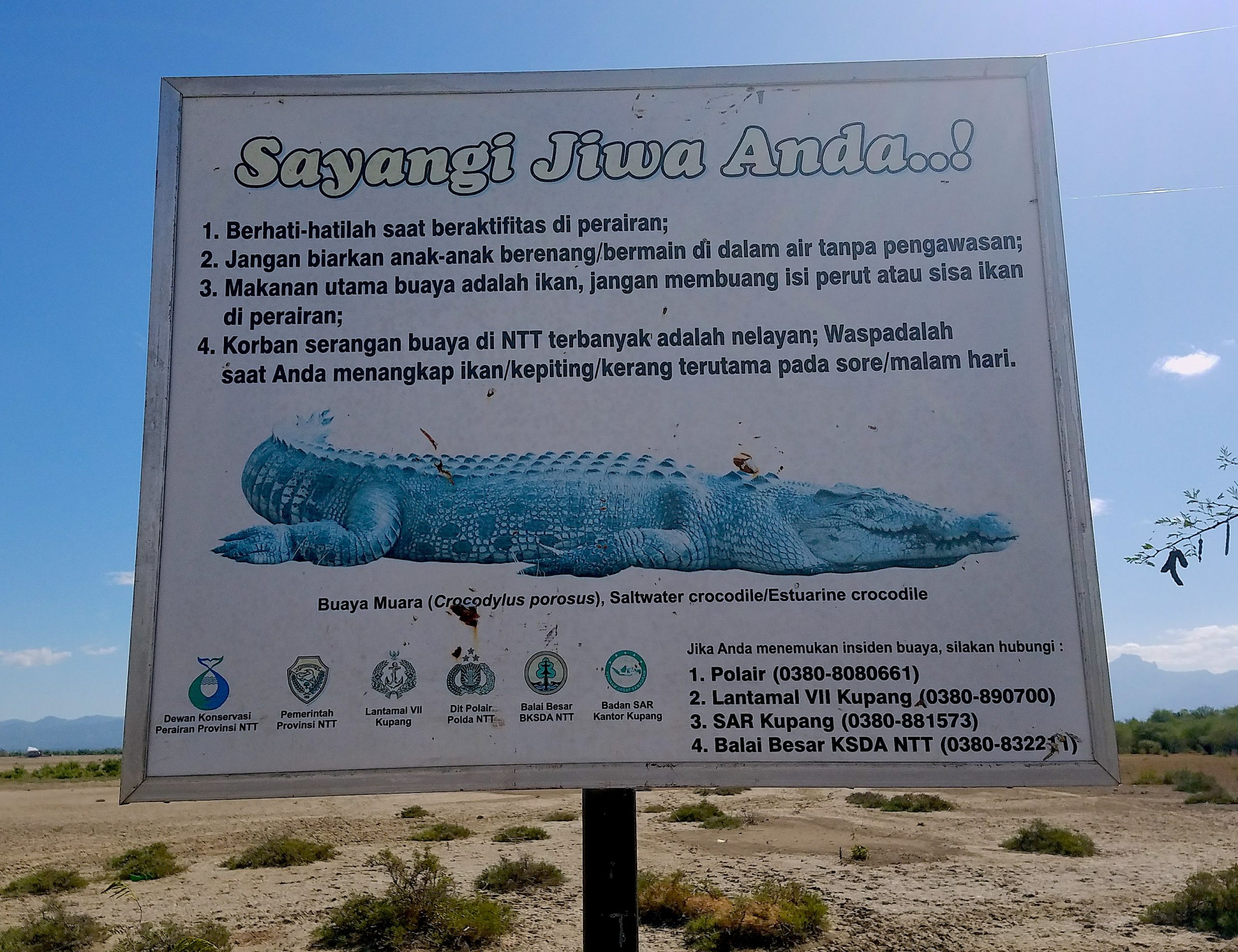CROCODILES AND CRONIES: Making Multispecies Alliances in Kupang Bay, Gillian BogartIndonesian national development programs have,…

SPAS Graduate Student Conference 2019: Thogchai Winichakul
The Annual SPAS Asian Studies Graduate Student Conference begins Thursday, April 11. Please join us for a talk by keynote speaker Thogchai Winichakul at 3pm in the Center for Korean Studies to commenceannual program!
Thongchai Winichakul is Emeritus Professor of History at the University of Wisconsin-Madison , and currently Senior Researcher at the Institute of Developing Economies (ジェトロ アジア経済研究所(IDE-JETRO)) in Japan. His book, Siam Mapped (1994), was awarded the Harry J Benda Prize from the Association for Asian Studies, Inc. (AAS). He was a recipient of the John Simon Guggenheim Award in 1994 and was President of the Association for Asian Studies by its members in 2013/14. His research interests are in the cultural and intellectual history of Siam focusing on the intellectual foundation of modern Siam (1880-1930). His forthcoming book is, however, on the history of memories of the 1976 massacre in Bangkok, the tragedy in which he was a participant. He is also a well-known critic of Thai political and social issues and has published six books and several articles in Thai.






